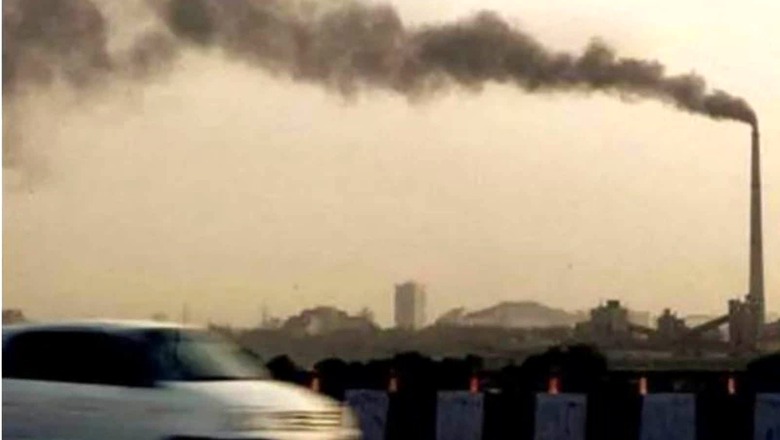
views
As the global clean energy transition gathers pace, India will need to start adjusting its fiscal policies now to account for declining fossil fuel use — or witness a fall of around 65% in direct public fossil fuel revenues by 2050, according to a new report by the International Institute for Sustainable Development (IISD).
The report spotlights fiscal impacts of the energy transition on six emerging economies — Brazil, Russia, India, Indonesia, China, and South Africa (BRIICS) — which are particularly vulnerable due to heavy dependency on fossil fuels. The projections are based on the International Energy Agency (IEA)’s Sustainable Development Scenario (consistent with 2°C warming), which itself equates to an unacceptable risk of extreme global warming.
Countries will need to phase down fossil fuels to comply with the 2015 Paris Agreement under which they have agreed to hold “the increase in the global average temperature to well below 2°C, and to pursue efforts to limit the temperature increase to 1.5°C.” The rate of this change is unpredictable, and countries will need to plan for all eventualities.
Public revenues from fossil fuel production and consumption currently account for a staggering 18% in India but would be much larger if one considers private incomes and flow-on effects in these economies. According to the report, this economic reliance puts the country at risk of experiencing a substantial revenue gap over the next few decades, as the world transitions from fossil fuel-based energy systems to cleaner energies to limit global warming to 1.5°C.
To add to it, the revenues are not only unreliable and erratic, but are also undermined by the negative economic impacts of fossil fuel use, such as health costs due to air pollution and damage from climate change which can far exceed public fossil fuel revenues in countries like India, the report highlighted.
“Emerging economies have an enormous opportunity to build more resilient and economically sustainable energy systems as they decarbonize — but they must plan ahead to avoid shortfalls in public revenues that could reverse progress on poverty eradication and economic development,” said lead author Tara Laan, who is senior associate at IISD, adding that the report aims to help the countries in planning for a managed transition to net-zero and reduce the risk of revenue crises that could reverse progress on poverty eradication and economic development.
This economic planning can be done in climate-positive and socially progressive ways, such as by removing subsidies from —and increasing taxes on — fossil fuels in ways that don’t hurt the poor, like export duties and windfall profits taxes, as imposed by India last week. Diversifying income streams — such as new targeted taxes in the energy and transport sectors — will also ensure that addiction to fossil fuel revenues does not become a barrier to reform.
Citing Indonesia’s example, the report says even large reductions in fossil fuel revenues can be sustained by rapidly developing other economic sectors. In Indonesia, the government’s oil and gas revenues fell from 35% of total revenue in 2001 to 16% in 2019, while the country’s GDP growth and budget deficit remained largely unchanged.
“Surging energy prices and demand are generating huge revenues from fossil fuel production and consumption. These temporary, short-term windfall profits should be taxed to fund the energy transition, which, in turn, will boost energy supplies, create green jobs, contribute to economic growth, and ultimately, increase government revenues,” Laan added. “At the same time, governments must protect vulnerable consumers from high prices and support fossil fuel-dependent workers and communities in ways that don’t hinder the transition to cleaner energy.”
Read all the Latest News, Breaking News, watch Top Videos and Live TV here.














Comments
0 comment